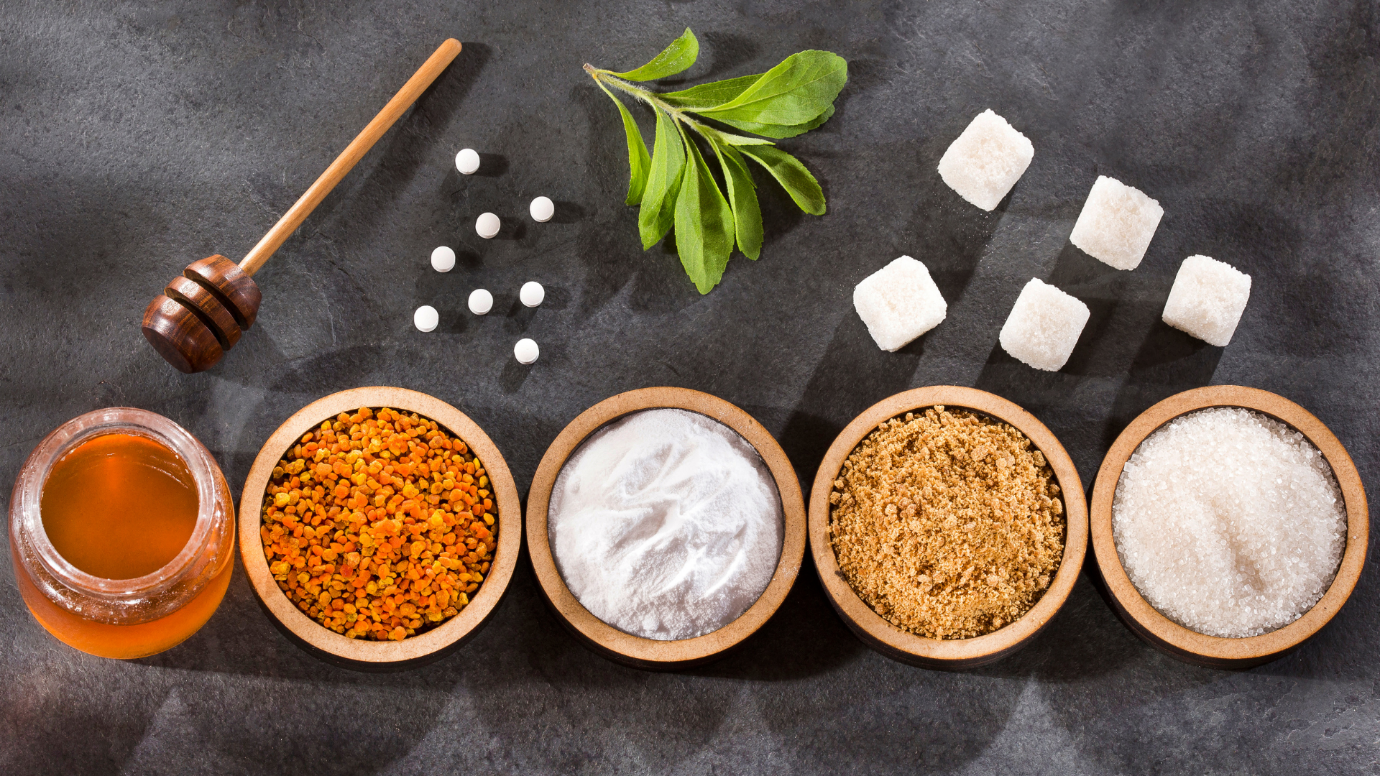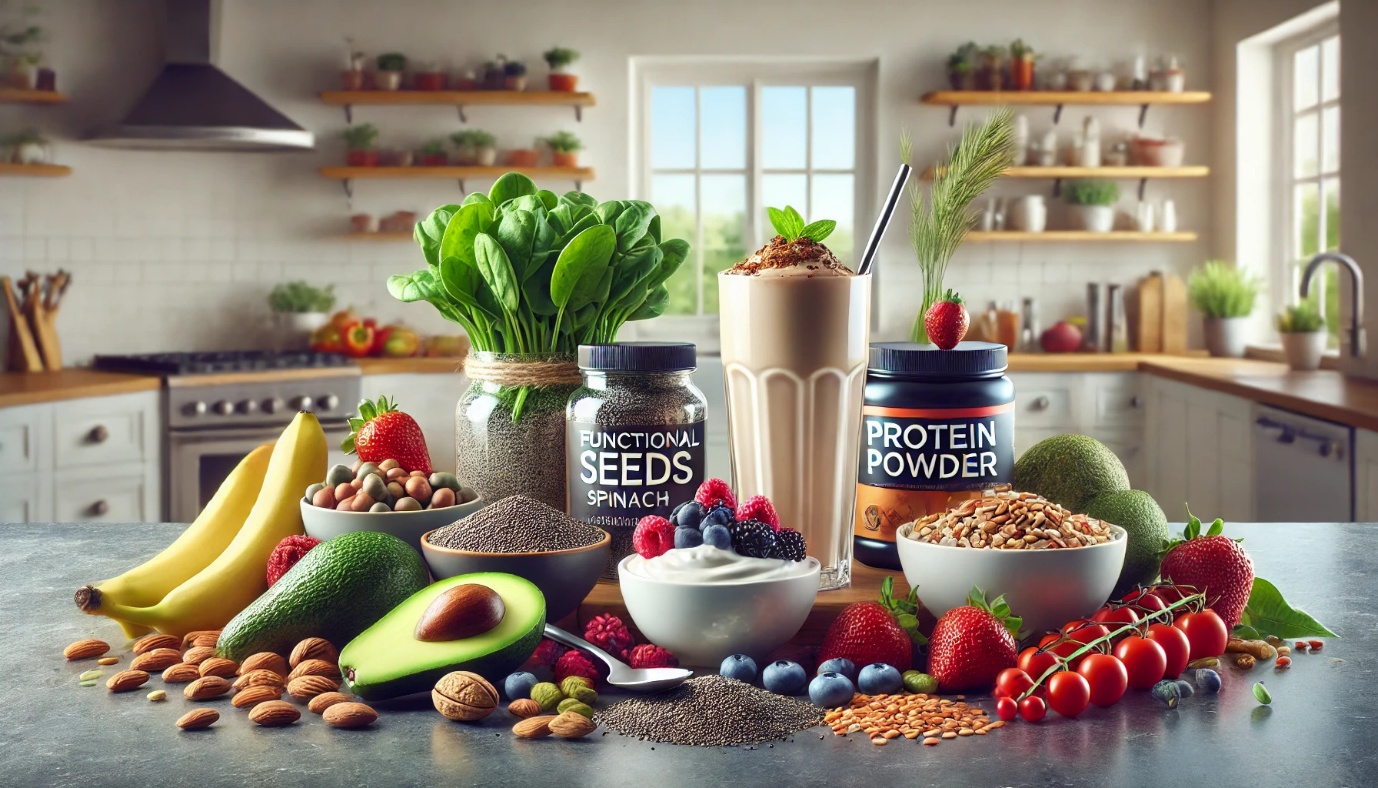There is much debate about artificial sweeteners in the world of health and nutrition: They are promoted as a way to lose weight because they are low-calorie but some experts worry they may have dangerous side effects.
There are claims that artificial sweeteners can increase the risk of cancer, affect blood sugar levels negatively and harm gut health. This raises a question: who is correct?
In this blog, we take a controversial look at both sides of the argument– then find out what official health bodies have said about whether these are safe to eat or drink for everyday wellness.
What are artificial sweeteners?
Artificial sweeteners have become an attractive option in helping individuals reduce their sugar intake given that they provide a zero-calorie alternative for sugary foods; each tablespoon packed with less than 3 kcal.
With all of its 16 kcal per tablespoon, sugar when eaten may increase one’s weight and cause additional related issues; hence, at times artificial sweeteners are seen as wiser options.
In addition to being low-calorie, artificial sweeteners are also blood sugar friendly. This dual benefit makes them a top pick for individuals living with diabetes or those who want to control carb consumption.
Some popular artificial sweeteners are:
- Saccharin: Sweet’N Low
- Aspartame: Equal, NutraSweet
- Sucralose: Splenda
How do artificial sweeteners work?
Artificial sweeteners are more and more common these days because people want to eat and drink things that are sweet but don’t have too many calories in them. But why do they taste sweet at all?
Well, it’s all down to the taste buds. These tiny things are dotted around on your tongue and help you tell the difference between flavours like sugar, salt, acid and bitter.
When we consume things that are sweet– such as artificial sweeteners– they connect with taste receptors in just the right way. This creates a message to the brain that says, “Hey, this must be sugary!”
But here’s the really cool thing: because you only need very tiny bits of these artificial substances, they hardly give you any calories at all!
Do artificial sweeteners have any health benefits?
For individuals who want to indulge their sweet tooth without consuming excess calories, artificial sweeteners have become a common choice. However, can these products contribute to better health outcomes?
Research indicates that opting for sugar substitutes instead of traditional sweeteners may reduce rates of tooth decay— a development with positive implications for oral health.
Furthermore, people with diabetes can benefit from using these sugar alternatives because their blood sugar levels will not increase. If you are an adult or child who is overweight, artificial sweeteners could help with losing some weight in the short term.
Nonetheless, it remains uncertain whether these aids are effective in the extended management of weight. In the end, keeping to a nutritious diet and getting regular exercise are still essential for good health in the long term.
Potential side-effects of artificial sweeteners
Artificial sweeteners, often portrayed as superior to natural sugar, may have a flip side. Studies show that consuming them for long periods could lead to issues harming the body.
Zero-calorie sugar substitutes seem addictive, acting like ordinary sugar; hence, posing a challenge in controlling one’s appetite in the long run.
However, giving in to these desires all the time can lead to serious illnesses such as obesity, high blood pressure, metabolic syndrome and diabetes Type II.
Studies have indeed shown a connection between consuming artificial sweeteners and heart ailments. To safeguard your wellbeing for years to come, keep an eye on how much of the artificial stuff you eat– consider using natural options instead.
Side-effects of Aspartame– The most common type of artificial sweetener

Despite being extensively used as a sugar substitute, aspartame has been associated with numerous health issues.
Studies indicate that far from being benign, this artificial sweetener might actually be harmful and have an impact on how healthy we are overall.
Multiple studies have suggested that there may be a connection between the intake of aspartame-laden items and the onset of conditions like:
- Obesity
- Diabetes
- Early menarche
- Mood disorders
- Psychological stress
- Melancholia
- Autism (in offspring)
People with phenylketonuria, which is a genetic disorder that prevents the proper metabolism of amino acids by the body, must not consume aspartame due to its high phenylalanine content. This may result in cognitive developmental issues.
People with migraines or seizures and pregnant women should also avoid using items that have this artificial sweetener.
Safer alternatives to artificial sweeteners

Want something sweet but worried about health? Go for natural sugars– they satisfy the craving and are better for you.
And if you don’t fancy sugar or artificial sweeteners, try these healthier options that can also hit the spot (as long as it’s just now and then):
- Blackstrap molasses
- Maple syrup
- Coconut sugar
- Raw honey (not for infants), and
- Stevia
Nonetheless, we should be careful not to overindulge just because these alternatives are perceived as being less harmful. Like anything sugary, it is advisable to employ different kinds of sweeteners in limited amounts.
Final Thoughts
To sum up, artificial sweeteners offer benefits like cutting back on sugar and helping with weight control. But remember, it’s still important to use them in moderation– along with other healthy eating habits!
Even though artificial sweeteners are believed to be safe for adults, they might affect how you perceive flavors— and that could make staying hydrated more difficult. If you decide to use sugar substitutes, pay attention to how much you’re consuming overall so you can heed your body’s thirst signals.
While these calorie-free sweet treats can help quell an urge for something sugary, remember: It’s still important to eat a balanced diet if being healthy is one of your goals!





